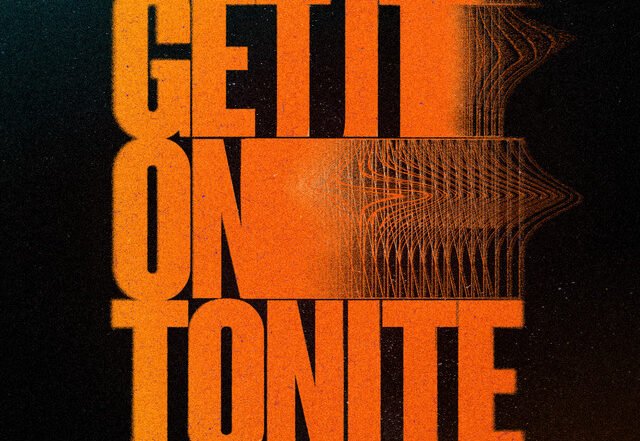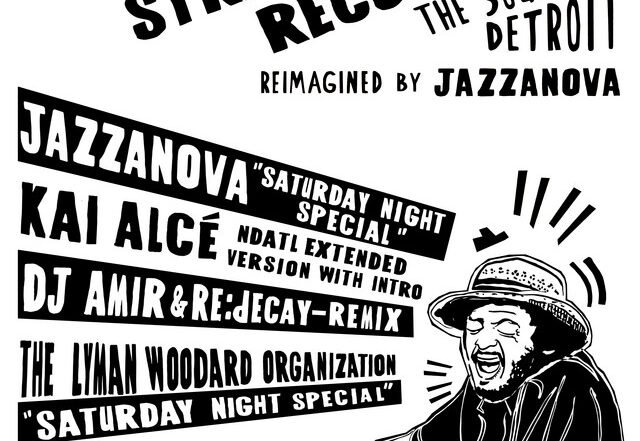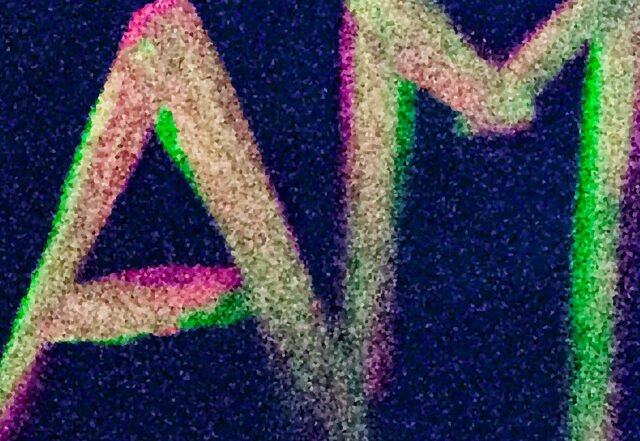House Music ⁞ New Releases⁞ Artist Interviews⁞ Music News
Introduction of House Music
House music is a genre of electronic dance music that originated in the 1980s in Chicago, Illinois. It is characterized by its use of a four-on-the-floor beat, synthesizers, and electronic drum machines, as well as prominent basslines and vocals that often feature repetitive phrases and a strong emphasis on rhythm. House music is often associated with the club scene and has been popularized by DJs and producers who create and play the music at clubs and other venues around the world. It has also been influential in the development of other electronic dance music genres such as techno, trance, and garage.
House by Nagamag Playlist on Spotify
House Featured Releases
Latest House discoveries
3xzed – YOU
Playing with the vocal, editing and production that is crystal clear is the first thing that could be noticed with this song. Great club groove is perfect for ... >>> Read more & listen to this song on Nagamag #houseoldschool #edm #nagamag #musicmagazine
the fashion show – Depression Type Beat 001
Δυνατός ρυθμός με ζωντάνια κα ενέργεια που σε αναστατώνει. Η μελωδία γεμάτη μυστήριο εξάπτει την φαντασία. Σαν μια ήρεμη δύναμη που έρχεται να σε βγάλει από τι... >>> Read more & listen to this song on Nagamag #melodictechno #house #deephouse #witchhouse #nagamag #musicmagazine IG: @fashionshow.wav
DJ Katch – Get It On Tonite
Vocals instantly pulls you into the song, catchy and beautiful. Song is produced so well with a classic house groove feeling, like an homage to the old school... >>> Read more & listen to this song on Nagamag #electropop #edm #futurehouse #nagamag #musicmagazine IG: @djkatchofficial
aboywithabag – Treat U Wrong
Perfectly groovy vibe with well produced drums and rhythm parts are layered with interesting synth background sounds. Vocal are very catchy, that stutter edits... >>> Read more & listen to this song on Nagamag #melodictechno #house #houseoldschool #nagamag #musicmagazine IG: @aboywithabag
Kapuzen – Know Me
With very catchy vocal that is edited so well and arranged in a great way. Club oriented drums are perfect for the party people as well as the ones who likes t... >>> Read more & listen to this song on Nagamag #techhouse #nagamag #musicmagazine IG: @KapuzenMusic TW: @KapuzenMusic
Kai Alcé – Jazzanova – Saturday Night Special (Kai Alcé NDATL Remix – Extended Version)
Remix that retells the story of the original in very good way. More groovy and more jazz elements that are perfectly arranged and produced. Drums and rhythmic ... >>> Read more & listen to this song on Nagamag #houseoldschool #nagamag #musicmagazine
Riigs, Skenna – Amsterdub
With bass line so smooth and driving force of a perfect modern club rhythm, track takes its shape into a very atmospheric techno oriented style. Layered with a... >>> Read more & listen to this song on Nagamag #organichouse #melodictechno #house #nagamag #musicmagazine
hozho x Droplex – Sitting In This Cage
Piano theme in the beginning feels like a classical composition, full of cinematic layers, such a beautiful way to start a track. After the longer and amazing ... >>> Read more & listen to this song on Nagamag #techno #melodictechno #house #minimaltechno #nagamag #musicmagazine IG: @hozho TW: @_hozho_
ZUSO – Take Me ft. Jaki Nelson
Catchy and very groovy bass line will definitely make you dance with smooth drums. Vocal is crystal, perfect hook within the song, specially the background voc... >>> Read more & listen to this song on Nagamag #melodictechno #house #indieelectronic #indietronica #nagamag #musicmagazine IG: @zuso_music
Some House subgenres
There are many subgenres of house music, each with its own unique characteristics and influences. Some common subgenres of house music include:
Deep house: A subgenre of house that originated in the 1980s and is characterized by its use of complex chord structures, smooth basslines, and a relaxed, atmospheric sound.
Tech house: A subgenre of house that combines elements of techno and house music and is characterized by its use of intricate, percussive rhythms and a strong emphasis on production techniques.
Acid house: A subgenre of house that originated in the 1980s and is characterized by its use of the Roland TB-303 synthesizer, which produces a distinctive, squelchy sound known as the “acid” sound.
Tribal house: A subgenre of house that originated in the 1990s and is characterized by its use of percussion-heavy rhythms and a strong tribal influence.
Electro house: A subgenre of house that originated in the 2000s and is characterized by its use of electronic and synthesized sounds, as well as heavy basslines and a fast tempo.
Chicago house: A subgenre of house that originated in Chicago, Illinois and is characterized by its use of a four-on-the-floor beat, electronic drum machines, and synthesizers.
Funky house: A subgenre of house that combines elements of funk, soul, and disco with a four-on-the-floor beat and electronic production techniques.
Minimal house: A subgenre of house that originated in the 2000s and is characterized by its use of stripped-back, minimalist production techniques and a focus on subtle changes in sound and rhythm.
Progressive house: A subgenre of house that originated in the 1990s and is characterized by its use of complex, evolving melodies and a focus on building tension and releasing it through the use of breakdowns and buildups.
Soulful house: A subgenre of house that combines elements of soul, funk, and disco with a four-on-the-floor beat and electronic production techniques.
Bass house: A subgenre of house that originated in the 2010s and is characterized by its use of heavy basslines, distorted synths, and a focus on high-energy dancefloor appeal.
Jackin’ house: A subgenre of house that originated in Chicago and is characterized by its use of a four-on-the-floor beat, funky basslines, and a strong emphasis on rhythm.
Ghetto house: A subgenre of house that originated in Chicago and is characterized by its use of raw, stripped-back production techniques and a focus on bass-heavy, percussive rhythms.
These are just a few examples of the many subgenres of house music that exist. Many house producers and DJs draw from a wide range of influences when creating their music, and the lines between different subgenres can be blurry at times.
The most used instruments in House Music
In house music, electronic instruments and production techniques are often used to create the distinctive sound of the genre. Some common electronic instruments and equipment that are used in the production of house music include:
Synthesizers: House music often makes use of synthesizers to create a wide range of electronic sounds, including basslines, melodies, and percussion.
Drum machines: House music often makes use of drum machines to create the characteristic four-on-the-floor beat that is a hallmark of the genre.
Samplers: House music producers often use samplers to manipulate and incorporate sounds from other sources, such as vocals, percussion, or other instrumentation, into their tracks.
Digital audio workstations (DAWs): House music producers often use digital audio workstations to create, edit, and arrange their tracks.
DJ controllers: House music DJs often use DJ controllers to mix and manipulate tracks in real-time.
Effects processors: House music producers and DJs often use effects processors, such as reverb, delay, and filters, to shape the sound of their tracks.
Vocals: vocals are often used in house music. In many cases, vocals are used to provide a catchy, repetitive phrase or hook that helps to drive the rhythm of the track and create a memorable listening experience. House music vocals are often processed with effects such as reverb, delay, and filtering to give them a distinctive sound. In some cases, house music producers will sample vocals from other sources, such as classic soul or disco tracks, and incorporate them into their own tracks. House music vocals can be performed by a solo artist or a group, and can be sung or spoken in a variety of styles. The lyrics in house music can vary widely depending on the specific track and the artist who created it. Some house music tracks may have lyrics that focus on themes such as love, relationships, or personal experiences, while others may have more abstract or spiritual themes. In some cases, the lyrics of a house music track may be secondary to the overall atmosphere or groove of the track, and may be used more as a means of creating a particular mood or feeling rather than conveying a specific message. In other cases, the lyrics of a house music track may be more prominent and may be used to convey a specific message or theme. Ultimately, the meaning of the lyrics in a house music track will depend on the specific artist and the context in which the track was created.
In addition to these electronic instruments, some house music producers and DJs may also incorporate live instrumentation, such as keyboards, drums, or guitar, into their tracks.









